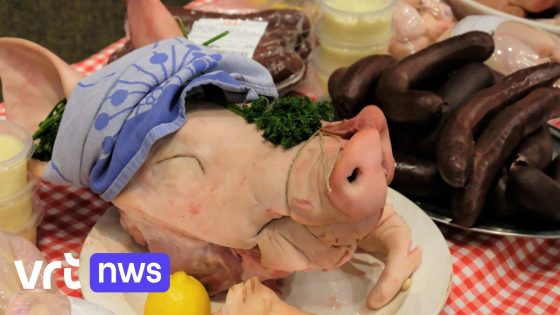The tradition of pig head sales in Wever is a fascinating glimpse into Belgium‘s rich cultural heritage. On January 17, locals honor Saint Anthony, whose followers historically distributed pigs to the needy. But is this age-old custom still relevant today?
- Tradition emerged in the 19th-20th century
- Roots trace back to the Middle Ages
- Saint Anthony had symbols like a pig
- Antonieten were pig herders and caregivers
- January 17 featured distribution of pigs
- Public sale replaced earlier charitable practices
Exploring the Cultural Significance of Pig Head Sales in Belgium
What makes the pig head sale such an enduring tradition? This unique event, rooted in medieval practices, showcases how communities come together to celebrate their history and support one another.
The Revival of Traditional Events: A Look at Community Engagement
In recent years, there has been a renewed interest in traditional events like the pig head sale. Communities are embracing their heritage while adapting these customs for modern audiences. This trend highlights a desire for connection and authenticity.
The Historical Roots of Pig Head Sales in Belgium
The practice began with followers of Saint Anthony, who were known as Antonieten and cared for pigs. Historically, they would distribute these animals among the less fortunate around January 17th each year.
- Pig distribution was a form of charity during medieval times.
- The tradition evolved into public sales by the 19th century.
- This event fosters community spirit and social responsibility.
- Modern adaptations keep the celebration alive while engaging younger generations.
Cultural Traditions: Bridging Generations Through Shared Practices
Cultural traditions like the pig head sale serve as bridges connecting past and present generations. They offer opportunities for storytelling and learning about historical values that shaped communities.
The Future of Traditional Festivals: What Lies Ahead?
As society evolves, so do traditions. The future may see more innovative approaches to celebrating customs like the pig head sale, ensuring they remain relevant while honoring their origins. Will these changes attract new participants eager to learn about their heritage?
This blend of old and new invites everyone to partake in cultural celebrations that foster unity and understanding across diverse backgrounds.

































